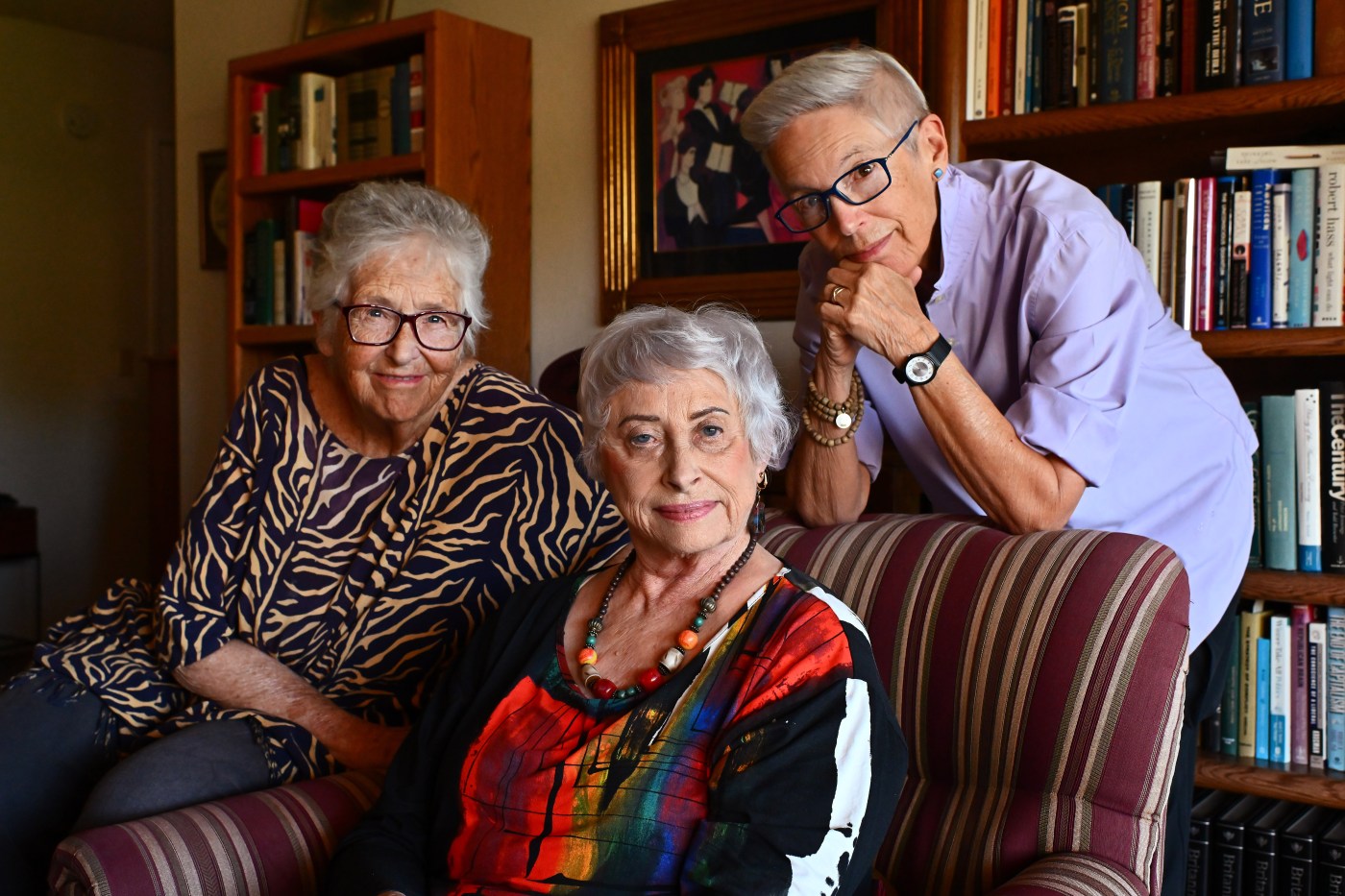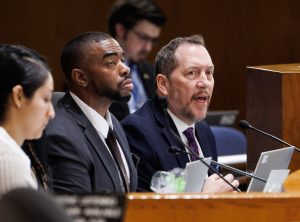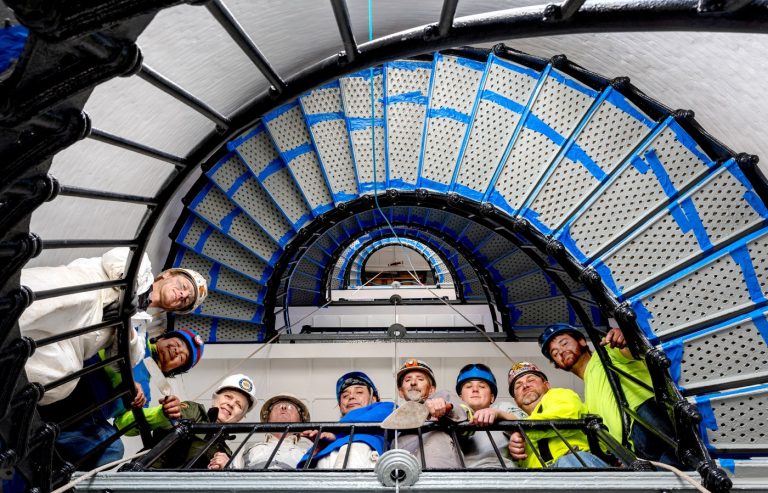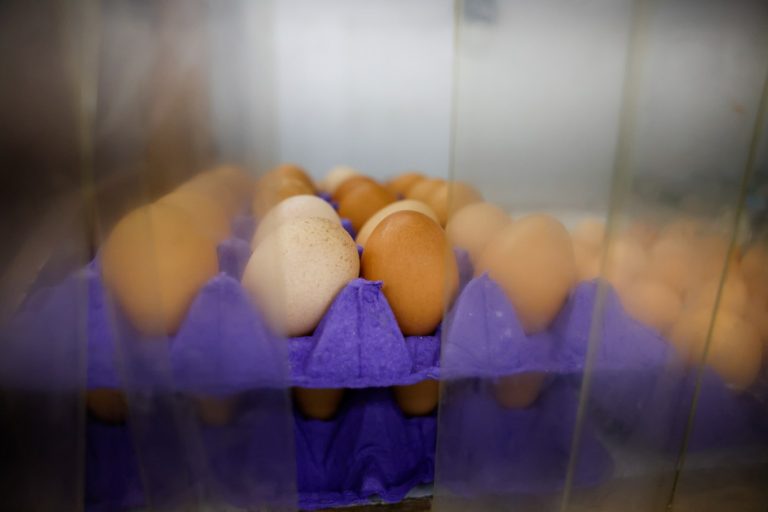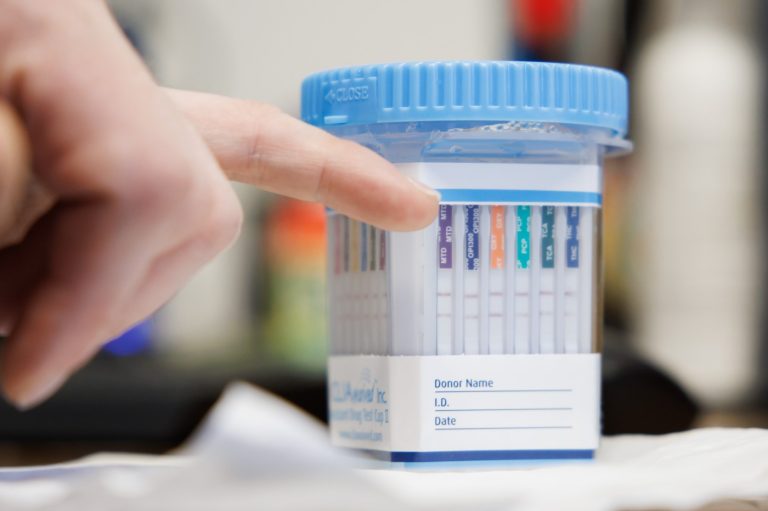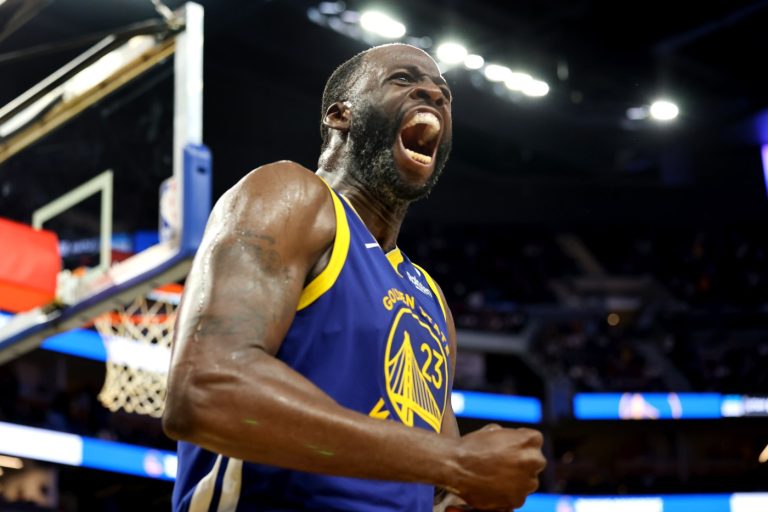Martha Boesing was 28 when she crossed state lines to get a “back-alley” illegal abortion. It was nearly 10 years before the U.S. Supreme Court recognized the right to abortion in the 1973 landmark Roe v. Wade case.
Boesing wasn’t sure if the man who performed the procedure was a licensed doctor but had heard of him through friends — a common way women sought out abortions in the years before legalization. She didn’t have much choice when it came to picking someone to perform the procedure. Instead, she sacrificed safety and comfort for secrecy.
“I had no anesthetic — at one time, it was hurting so much I said, ‘Please, can you give me something?’ ” Boesing, 88, of Walnut Creek, recalled. “And he just looked at me and said, ‘You should have thought about that earlier, deary.’ ”
After the Supreme Court’s Dobbs v. Jackson decision two years ago overturned an abortion right the court had set in 1973 with Roe v. Wade, Boesing helped create “Voices from the Silenced,” a play in which Bay Area women anonymously share — for the first time — their stories of illegal abortions.
“Voices from the Silenced” debuted in 2023 for a total of five performances, and a film version premiered earlier this year. On Monday’s second anniversary of Dobbs, Boesing and others involved in the “Voices” project shared their own illegal abortion stories for the first time in an interview.
It was Victoria Rue, 77, a neighbor of Boesing’s at Rossmore, a 55-and-older community in Walnut Creek, who got the “Voices” project rolling.
Like Boesing, Rue said her abortion a year before Roe v. Wade also was covert and painful. She was 25 when she went to a storefront on Melrose Avenue in Hollywood for a “menstrual extraction.” Rue said the man who performed the procedure was not a doctor and didn’t give her painkillers. Instead, she said he called his 12-year-old daughter into the room to hold her hand through the “excruciating” procedure.
After the Dobbs decision, she said she knew she had to do something to help the young women she feared now would be subject to the same ordeal she and Boesing went through more than 50 years ago. So Rue called Boesing and together they gathered more than 20 stories from other women living at Rossmore that would be featured in “Voices.”
Rue, a San Jose State University lecturer, has 40 years of experience writing and directing plays. Boesing has written over 40 plays, led workshops and directed shows for theaters throughout the country.
“It immediately brought up my own abortion, and I thought, ‘Oh my God … here we go again,’ ” Rue recalled. “I was furious.”
Split into several chapters, “Voices” highlights topics including religion, shame, poverty, protests, the Supreme Court and individual abortion stories. Seven women, supported by two musicians, represented the chapters. The group worked pro bono, and all of the proceeds from the show — approximately $7,000 — went to Planned Parenthood Northern California.
The film version was created by Luna Productions, directed by Randy Field and edited by Gary Weimberg. The team also worked pro bono to produce the film, and The American Medical Women’s Association funded the effort and distribution, with the hopes of sharing the experiences of women who received abortions before Roe v. Wade across the country.
“We have to amplify that history because we believe that not enough people understand history,” said Eileen Barrett, president-elect of The American Medical Women’s Association. “When people don’t understand history, they’re doomed to repeat it.”
Not everyone share’s the project’s perspective on the controversial topic. Mary Rose Short, outreach director for California Right to Life, said that while the court “corrected its error” with its Dobbs decision, “the damage to our country cannot be repaired overnight,” and it’s unborn children who are voiceless in the debate.
“Abortion silences their voices forever,” Short said. “We have much work still to do to create a society in which the inherent dignity and right to life of all human beings is recognized and protected by law.”
Rue said she remembers the audience’s reaction on opening night of the play in 2023 when the cast and crew received a standing ovation. She said a large number of men came up to her after the show and expressed horror at never knowing what women had gone through during that time.
But Rue said it was the young audience members’ reactions that she remembers most clearly.
“I remember this young woman who stood up and said, ‘I can’t believe that in my lifetime, the same thing is happening as happened in yours,’ ” she recalled.
Beyond the banning of abortions in several states, Barrett said that the confusion and fear around access to reproductive care and abortions in the U.S. has endangered women’s lives.
Related Articles
The Supreme Court allows emergency abortions in Idaho for now in a limited ruling
Supreme Court seems poised to allow emergency abortions, a Bloomberg News report says
‘Everything is at stake’ for reproductive rights in 2024, Harris says as Biden-Trump debate nears
Democrats mark abortion ruling anniversary with targeted outreach
Now an abortion rights advocate, woman raped by stepfather as a child will campaign with first lady
“Care is not available in the way that it should be because of the existing laws and the confusion,” she said. “The fear that is present for physicians in these states, they’re afraid they’ll be criminally prosecuted for providing evidence-based care.”
Barrett said with the current state of reproductive care in the U.S., she expects to see more of the stories and experiences shared in “Voices from the Silenced” in present day.
Among the illegal abortion stories featured in “Voices” is that of Jean Wilcox, 87, a British-born actress who is one of its performers. Her own experience, which she said she’d never shared with even her own family, is retold anonymously through another actress.
Living in San Francisco and new to the country, Wilcox was 27 when she found out she was pregnant. Lost and alone, she reached out to a doctor she had once dated and asked him if he knew of anyone who could give her an abortion. She said he told her if she kept it a secret, he would perform the procedure.
Wilcox said she felt lucky — since he was an anesthesiologist, Wilcox wasn’t conscious during the procedure. But when she woke up, he told her to drink water and take lots of pain medicine and then drove her home.
But Wilcox said the next morning, she realized she still was pregnant. She said she still doesn’t know what he had done or not done during the operation. She went back for another procedure, but this time she said he told her she would have to be awake the entire time to ensure she was “cooperating.”
“It was extremely painful. I did a lot of yelling out, but he did it.” she recalled. “And then he raped me. Then he drove me home.”
Wilcox, Boesing and Rue said that their own horrific experiences are not unusual.
“A lot of these stories are that awful,” Rue said. “The cruelty, even just the comments…that kind of craziness is present in many, many of the stories.”
Boesing, who recalled traveling from Minnesota to Wisconsin for an abortion, said in the days following the Dobbs decision, she remembers feeling helpless. And two years later, she said she’s still scared of what the future will bring for women’s rights.
But Rue said she doesn’t feel scared.
“I’m really encouraged by how many people are coming out of the woodwork to support reproductive rights,” she said. “We’re here to hold our younger sisters’ hands.”
Instructions for how to view the film at no-cost are on the “Voices from the Silenced” website at https://www.voicesfromthesilenced.com/
